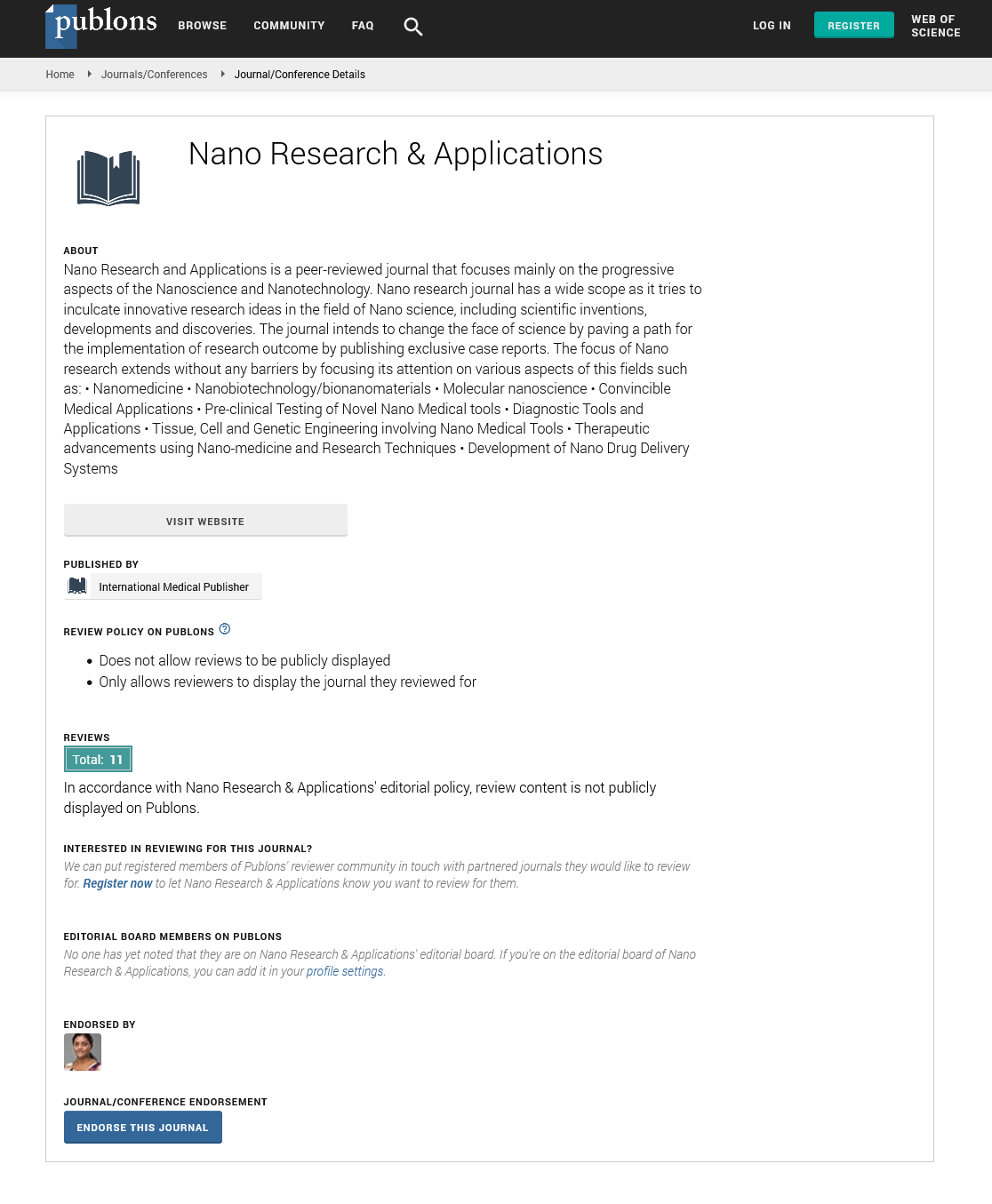ISSN : 2471-9838
Nano Research & Applications
Antigen-specific regulation of activated diabetogenic CD4+ and CD8- T Cells by Tregs induced by tolerization with antigen containing PLG nanoparticles
EuroSciCon Conference on Nanotech & Nanobiotechnology Nano
July 12-13, 2018 Paris , France
Stephen D Miller, Suchitra Prasad, Tobias Neef, Dan Xu, Joseph R Podojil, Daniel R Getts and Lonnie D Shea
Northwestern University, USA University of Michigan, USA
Keynote: Nano Res Appl
DOI: 10.21767/2572-5483-C1-001
Abstract
Type 1 diabetes (T1D) is mediated by destruction of pancreatic β cells by CD4 and CD8 T cells specific for epitopes on numerous diabetogenic autoantigens resulting in loss of glucose homeostasis. The ideal solution for treatment of T1D is the restoration of immune tolerance prior to significant β cell loss. We therefore explored the efficacy and mechanisms of restoration of immune tolerance using the intravenous infusion of diabetogenic epitopes attached to or encapsulated within 500nm biodegradable carboxylated poly (lactide-co-glycolide) (PLG) nanoparticles. Employing adoptive transfer models of T1D induced by the transfer of activated diabetogenic CD4+ BDC2.5 chromagranin A-specific and CD8+ NY8.3 IGRP-specific TCR transgenic T cells; we demonstrate the ability of PLG nanoparticles (either surface coupled with or encapsulating the cognate diabetogenic peptides) to rapidly and efficiently restore tolerance in NOD SCID recipients of both activated CD4 and/or CD8 T cells in an antigen-specific manner. Further, Ag-PLG-induced peripheral tolerance initiation and maintenance were demonstrated to operate via several overlapping, but independent pathways including regulation via negative-co-stimulatory molecules (namely CTLA-4 and PD-1) and the systemic induction of peptide-specific Tregs which were shown to be critical for long-term maintenance of tolerance in recipients of BDC2.5 CD4 diabetogenic T cells. The net result of the tolerance therapy was inhibition of both trafficking of effector diabetogenic cells to, and their release of proinflammatory cytokines within the pancreas, concomitant with selective retention of effector cells in the spleens of recipient mice. These results clearly demonstrate the unique ability of Ag-PLG-induced tolerance to halt/reverse β cell destruction in mice with high numbers of activated effector diabetogenic CD4 and CD8 T cells.
Biography
Stephen D Miller is the Judy E Gugenheim Research Professor of Microbiology-Immunology at Northwestern University Feinberg School of Medicine in Chicago. He received his PhD in 1975 from the Pennsylvania State University and did Postdoctoral training at the University of Colorado Health Sciences Center before joining the faculty at Northwestern in 1981 where he currently serves as Director of the Northwestern University Interdepartmental Immunobiology Center. He is internationally recognized for his research on pathogenesis and regulation of autoimmune diseases. He has published over 390 journal articles, reviews and book chapters and has trained multiple generations of scientists. His work has significantly enhanced understanding of immune inflammatory processes underlying chronic autoimmune disease employing animal models of multiple sclerosis (MS) and Type 1 diabetes (T1D). His work has focused on the study of the cellular and molecular mechanisms underlying treatment of established T cell-mediated autoimmune diseases using antigen-specific immune tolerance. His current work is geared to translate the use of antigen-linked biodegradable PLG nanoparticles for the treatment of human immune-mediated diseases including autoimmunity, allergy and tissue/organ transplantation.
E-mail: s-d-miller@northwestern.edu
Google Scholar citation report
Citations : 387
Nano Research & Applications received 387 citations as per Google Scholar report
Nano Research & Applications peer review process verified at publons
Abstracted/Indexed in
- Google Scholar
- China National Knowledge Infrastructure (CNKI)
- Directory of Research Journal Indexing (DRJI)
- WorldCat
- Publons
- Secret Search Engine Labs
- Euro Pub
Open Access Journals
- Aquaculture & Veterinary Science
- Chemistry & Chemical Sciences
- Clinical Sciences
- Engineering
- General Science
- Genetics & Molecular Biology
- Health Care & Nursing
- Immunology & Microbiology
- Materials Science
- Mathematics & Physics
- Medical Sciences
- Neurology & Psychiatry
- Oncology & Cancer Science
- Pharmaceutical Sciences
